
The President reasserted America is taking back its leadership role on issues like the climate crisis, global health and pandemic mitigation

Biden: This is “a decisive decade for our world”
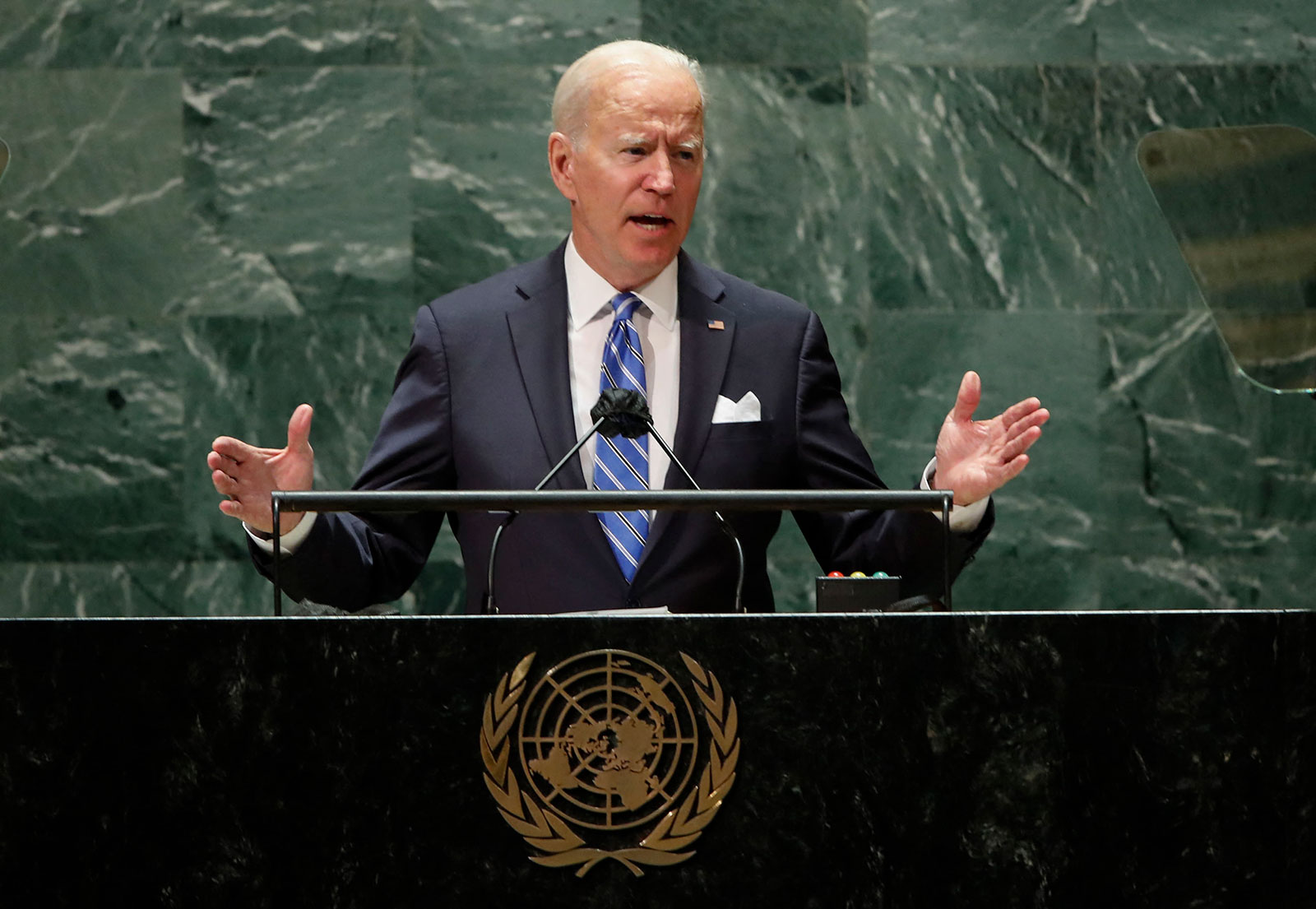
President Biden began his address to the UN General Assembly by acknowledging the huge losses around the world from the Covid-19 pandemic.
“We meet this year in a moment of intermingled with great pain and extraordinary possibility. We’ve lost so much to this devastating pandemic that continues to claim lives around the world and impact so much on our existence. We’re mourning more than 4.5 million people, people of every nation, from every background. Each death is an individual heartbreak,” he said.
He went on to say that this is “a decisive decade for our world” which will “quite literally determine our futures.”
On the pandemic, Biden asked: “Will we work together to save lives, defeat Covid-19 everywhere, and take the necessary stem to prepare ourselves for the next pandemic, because there will be another one. Or will we fail to harness the tools at our disposal as more virulent and dangerous variants take hold?”
NOW: Biden delivers address to United Nations
From CNN’s Maegan Vazquez
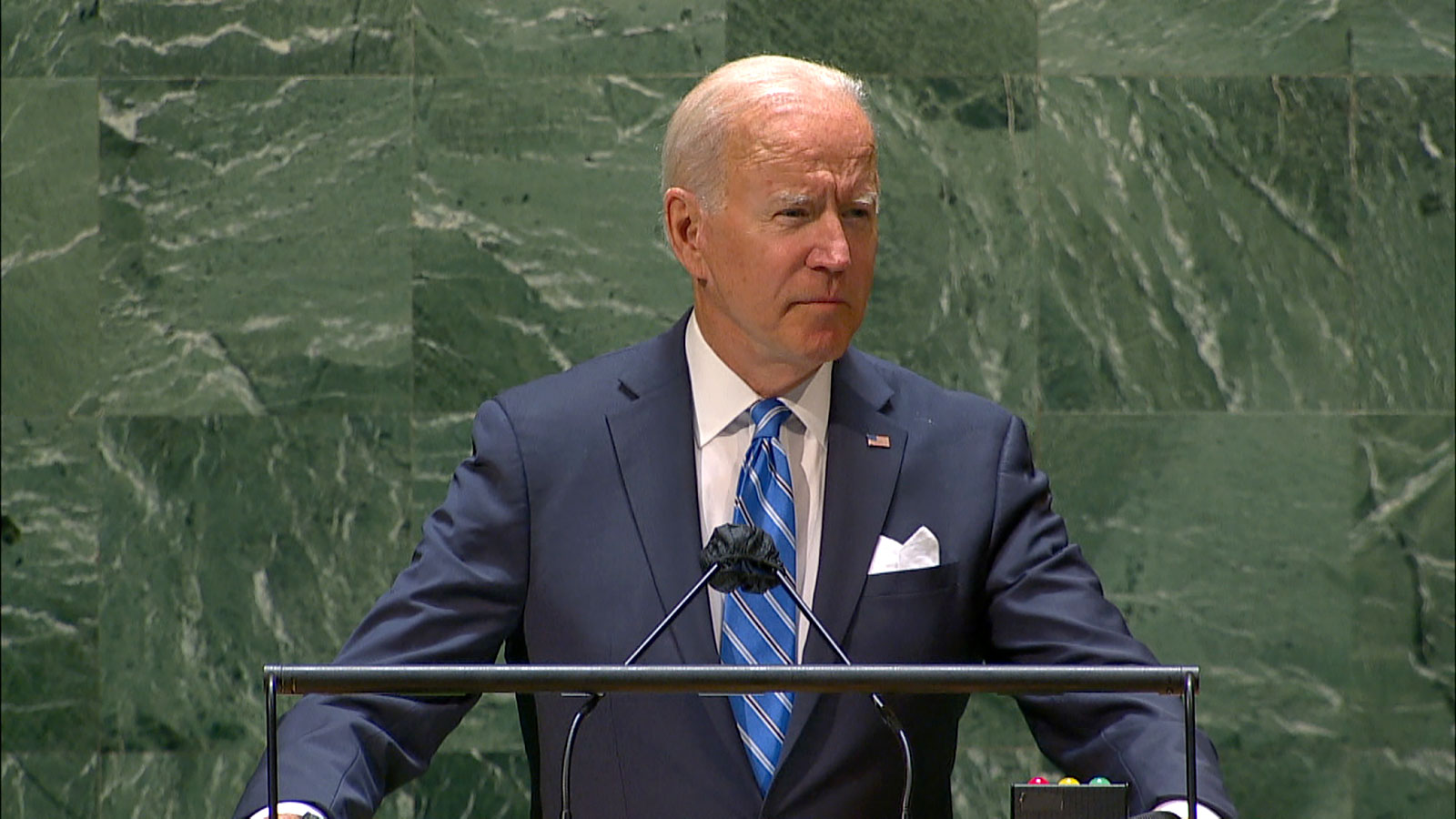
President Biden is delivering his first speech to the United Nations General Assembly since taking office, where he’s expected to present his long-term vision for the global community, defend the withdrawal from Afghanistan and emphasize the importance of reestablishing alliances.
Biden’s appearance at the assembly in New York comes as he continues to deal with a number of foreign policy crises, including blowback from the French over a recent deal to give Australia nuclear-powered submarines, the chaotic US withdrawal from Afghanistan and a bungled US drone strike in Kabul that killed Afghan civilians.
An administration official listed Covid-19, climate change, emerging technologies, trade and economics, investments in clean infrastructure and counterterrorism as areas toward which the President intends to direct the world’s attention — a prospect made easier by ending prolonged military conflicts.
White House press secretary Jen Psaki also said on Monday that Biden, during his remarks, will “lay out the case for why the next decade will determine our future, not just for the United States, but for the global community. And he will talk — and this will be a central part of his remarks — about the importance of reestablishing our alliances over the last several years.”
Read more about Biden’s speech here.
Biden arrives for key meeting at United Nations
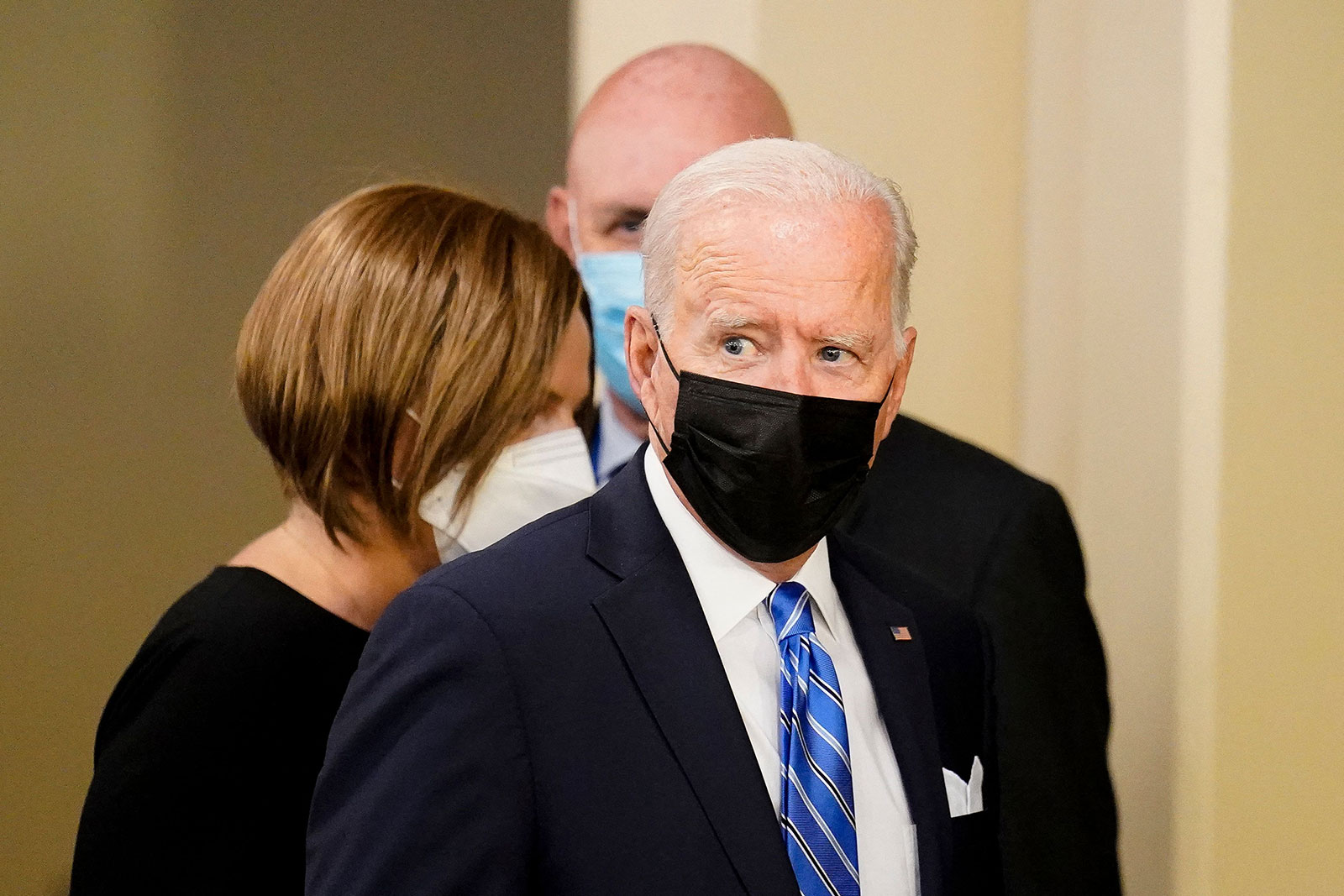
President Biden just arrived at the United Nations in New York City ahead of his remarks in the General Assembly.
Biden’s speech “will center on the proposition that we are closing the chapter on 20 years of war and opening a chapter of intensive diplomacy by rallying allies and partners and institutions to deal with the major challenges of our time,” a senior administration official said.
Here’s a look at the countries speaking this morning:
- Brazil
- United States
- Maldives
- Colombia
- Qatar
- Slovakia
- Portugal
- Kyrgyzstan
- Lithuania
- Uzbekistan
- Democratic Republic of Congo
- Iran
- Chile
- Republic of Korea
- Turkey
- Switzerland
CNN’s Maegan Vazquez contributed reporting to this post.
Brazil’s Bolsonaro will be the first world leader to speak today. Here are the key things to know.
From CNN’s Caitlin Hu and Rodrigo Pedroso

With Covid-19 and the environment at the top of the agenda at this year’s United Nations’ General Assembly, observers might brace themselves for the first world leader to speak in the UN headquarters’ storied hall: Brazilian President Jair Bolsonaro, notorious for his controversial handling of both issues at home.
Brazil traditionally goes first in the General Assembly’s weeklong roster of speeches by member states, and Bolsonaro, who is up for re-election next year, has wasted no time in setting a pugnacious tone for his appearance, publicly flouting the UN’s “honor system” that calls for foreign delegations to be vaccinated before entering the building, declaring last week that he would not get vaccinated, because he already had Covid-19.
“Why do you take a vaccine? To have antibodies, right? My antibodies rate is really high. I can show you the document,” he said in a live social media broadcast.
He added that he will only make a decision about getting vaccinated “after everyone in Brazil gets the vaccine” — a dissonant voice as the UNGA pushes this year to increase vaccination throughout the globe, and cajoling wealthier nations to share more doses with poorer ones.
Even in his home country, setting a good example is hardly Bolsonaro’s forte. He has long bucked pandemic restrictions and public health guidance, appearing maskless with crowds and frequently raging against municipal and state-level lockdown orders in Brazil, even during the grimmest moments of the pandemic, when hospitals filled to capacity and whole cities ran out of oxygen.
Over half a million Brazilians have died in the pandemic — the highest death toll in the world after the United States. Moreover, the Brazilian president tends to use appearances at the UN to reject foreign authority, showing a similar allergy to being told what to do when it comes to another globe-spanning crisis: global warming.
While Bolsonaro may test the ground with more measured rhetoric on climate and Covid-19, he has also launched new lines of attack domestically that hardly accord with the UN’s views on strengthening democracy and respect for institutions. In August, for example, Bolsonaro said he saw only three possibilities for his future — death, prison or winning the 2022 presidential elections — and has actively worked to undermine anything other than a victory at the polls, attacking his country’s voting system as unreliable unless it implements paper ballots.
UN secretary general outlines 6 global priorities as UNGA kicks off
From CNN’s Elizabeth Joseph
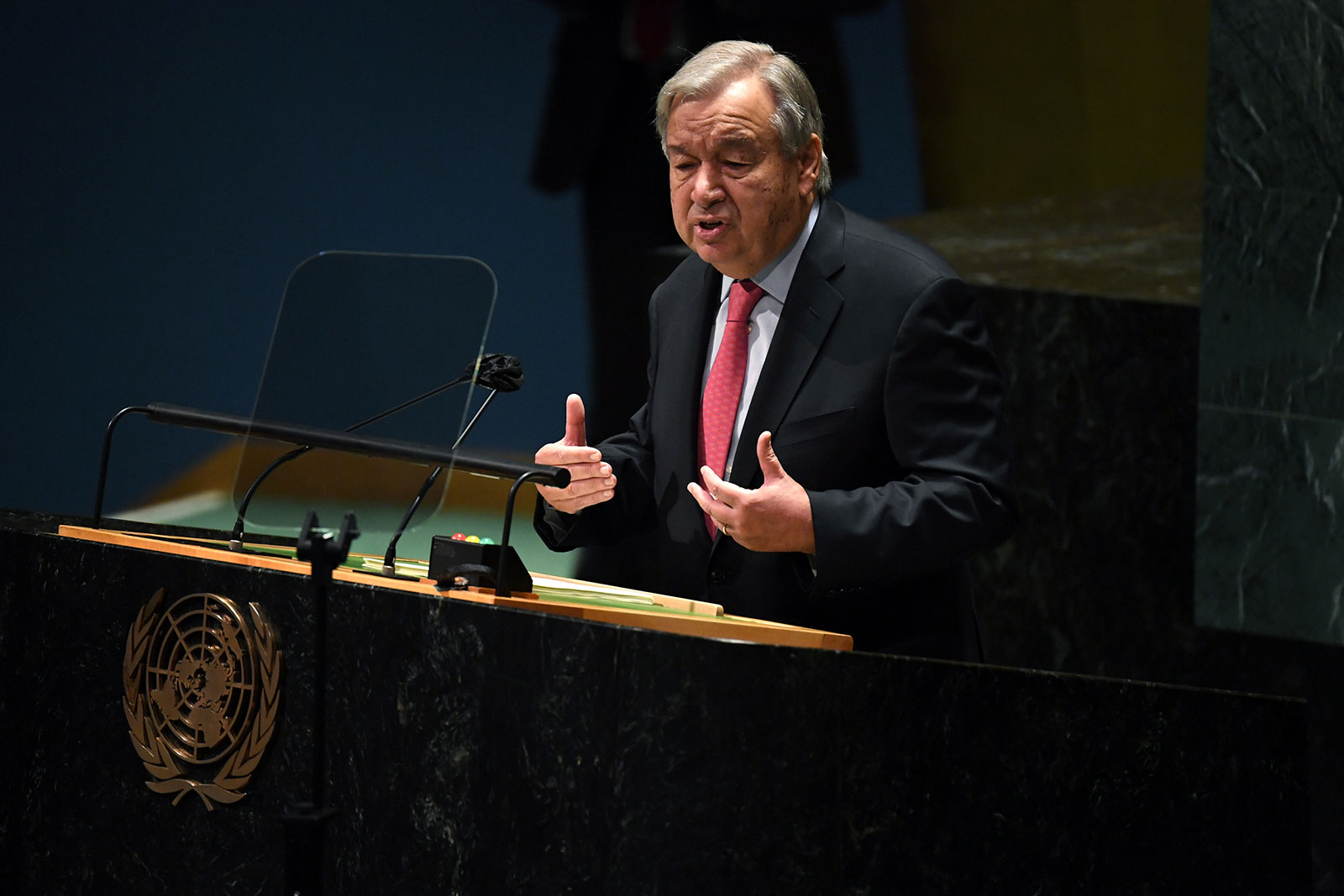
“The world must wake up. We are on the edge of an abyss and moving in the wrong direction,” United Nations Secretary-General António Guterres told the UN General Assembly ahead of the official start of the general debate.
He outlined the following global priorities:
- Bridge the peace divide
- Bridge the climate divide
- Bridge the gap between rich and poor, within and among countries
- Bridge the gender divide
- Bridge the digital divide
- Bridge the divide among generations
Leaders from around the world will now each get their turn to address the assembly.
You can find a list of today’s speakers here.
Biden will “look outward” in first UN speech, White House says
From CNN’s Betsy Klein
White House press secretary Jen Psaki previewed President Biden’s United Nations message Tuesday, saying the US is “looking outward.” He is set to deliver remarks at 10 a.m. ET before the UN General Assembly.
“He’s going to say to the world, all the leaders in the room, we’re not looking inward after we end a 20-year war. We’re going to look outward, and we’re going to prioritize what’s most important to address, whether that’s the climate crisis, whether that’s cyber threats, continuing to work with partners on counterterrorism, and that’s what we need to have our resources and focus and our eyes on, and we’re gonna do that through rebuilding our allies and partnerships,” she said during an appearance on CBS Mornings.
Psaki said Biden will be working on the US’s relationships abroad.
“The President is the first to say, you’ve got to work on relationships – we know this our real lives as well. And he is here to do that too. So when he speaks to the world today, he’s going to convey alliances are the backbone of who we are. We’re going to build and address these issues in the world based on those alliances,” she said.
As for another relationship, China, Psaki said that Biden conveyed to UN Secretary General Antonio Gutteres during their meeting Monday that “you do not have to be concerned that we’re trying to start a cold war with China – that is not what the United States is going to do.”
Rather, Psaki said, Biden views the relationship “through the prism of competition.”
Pressed on the “incoming” facing the Biden administration, Psaki acknowledged the challenges of the time.
“The way the President sees it, and we all do, is that’s what you do as president: you navigate crises, you weather storms, and we’re certainly doing that right now,” she said.
She touted the “long-abiding friendship” with France when asked about current tension in the relationship.
“We have a long abiding relationship, friendship, alliance with France. What we’re talking about here – this is about an economic deal. We have the best nuclear sub technology in the world, and the Australians wanted our technology. Prior to that, they were buying this from France. We understand that they’re displeased about that but we have a long abiding friendship with them, that’s going to endure and we’re going to rely on that long history of friendships,” she said.
And asked Biden’s reaction to video that appears to show law enforcement officers on horseback confronting Haitian refugees at the US border, Psaki said Biden “also felt they were horrific and horrible,” going on to note a statement from Homeland Security Sec. Alejandro Mayorkas on the investigation and the additional personnel sent to the area.
“I think it’s important for people to know that’s not who we are, that’s not who the Biden-Harris administration is, and we’re going to absolutely pursue that investigation and get to the bottom of what happened here,” she said.
Tension with Europe over scuppered submarine deal could overshadow Biden’s UN address
From CNN’s Eliza Mackintosh
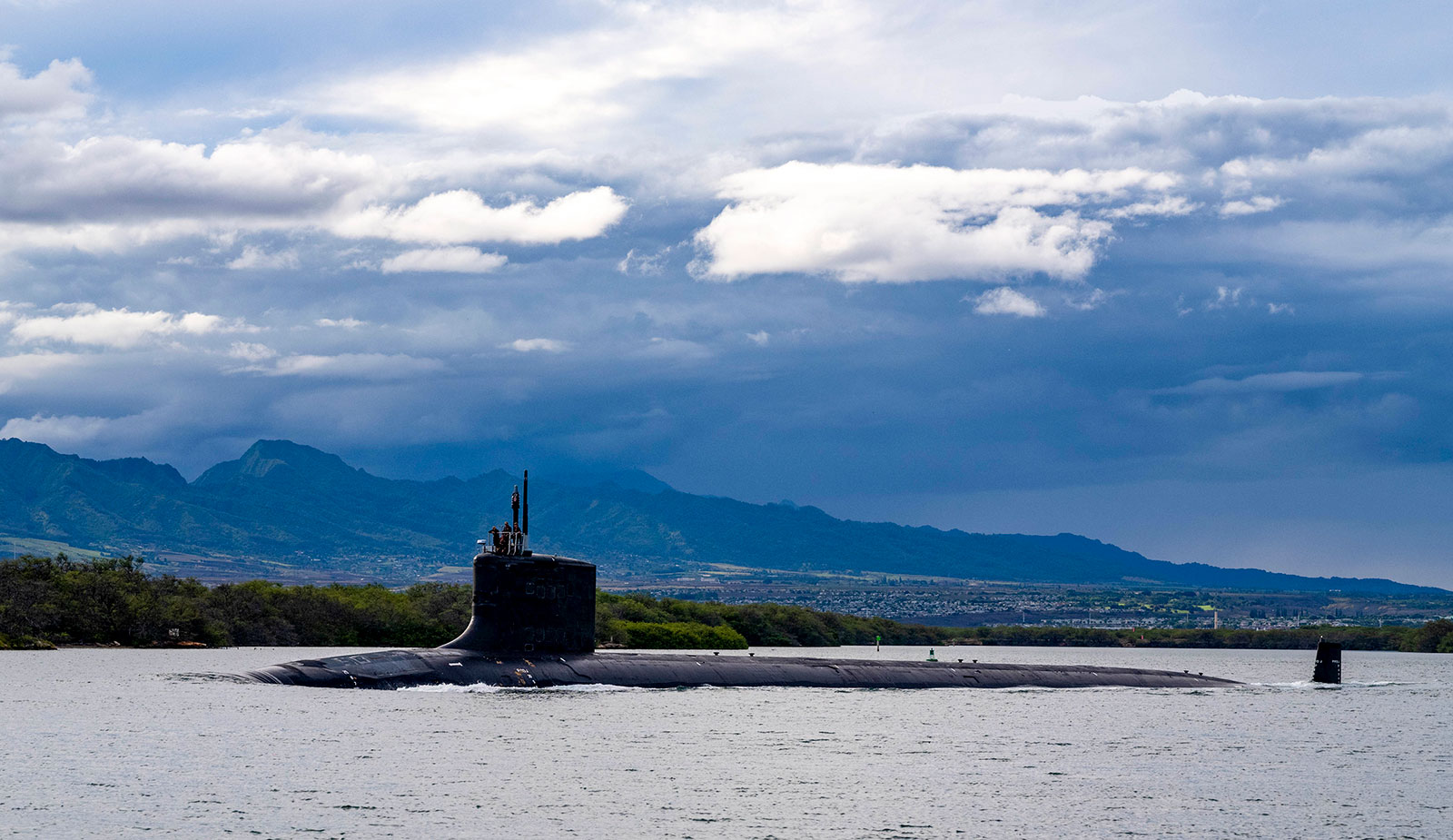
Tension between European leaders and the White House over a scuppered submarine deal threatened to overshadow President Biden’s address to the United Nations General Assembly on Tuesday, with one EU official saying “something is broken” in the transatlantic alliance.
The French government has been seething since last week, when Australia abandoned a huge deal to buy conventional submarines from France. Instead, the US and UK announced they would help Australia acquire nuclear-powered submarines as part of a new security pact called AUKUS.
The move has opened a new fissure in the Western alliance and sparked growing public criticism from other European officials.
Thierry Breton, the EU commissioner for internal markets, said in an interview with CNN on Monday that “something is broken between our relations in Europe and the US.”
Breton warned there was a “growing feeling” in Europe over past few weeks and there had been a “lack of trust and confidence between allies.”
“I’m here again to make sure that we rebuild this partnership, even if in some areas we may need to pause and reset it,” he added.
Some background: France reacted with fury to news of the new pact on Thursday, and that Australia was abandoning its $65 billion deal to buy French-built, conventionally powered submarines. In the wake of the deal, France recalled its ambassadors from Washington and Canberra, and asked the EU to reconsider Australia’s bid for a free-trade deal with the bloc.
While Biden has asked for talks with French President Emmanuel Macron in an attempt to smooth relations, Australian Prime Minister Scott Morrison said Tuesday he would not speak with Macron during the UN this week.
“That is not an opportunity for that at this time. I’m sure that opportunity will come in time. But right now, I understand the disappointment,” Morrison said.
Macron will not be in New York for the UN General Assembly and will not send a pre-recorded address, a spokesperson confirmed to CNN Tuesday. He had originally been slated to deliver a pre-recorded statement.
White House press secretary Jen Psaki told reporters Monday that Biden and Macron had agreed to speak “in the coming days.”
Read more about the submarine deal here.
Here are the countries we’re expecting to hear from today
It’s day one of the United Nations General Assembly (UNGA) in New York, and some world leaders are gathering in person despite a letter from the US encouraging member states to call in virtually, like they did last year.
More than 100 heads of state and government coming in person, including UK Prime Minister Boris Johnson, Indian Prime Minister Narendra Modi and US President Biden.
Like all UN events, schedule changes are ongoing, but here are the countries slated to address the assembly today:
Morning speakers:
- Brazil
- United States
- Maldives
- Colombia
- Qatar
- Slovakia
- Portugal
- Kyrgyzstan
- Lithuania
- Uzbekistan
- Democratic Republic of Congo
- Iran
- Chile
- Republic of Korea
- Turkey
- Switzerland
Afternoon speakers:
- Egypt
- Peru
- France
- Turkmenistan
- Latvia
- Philippines
- El Salvador
- Argentina
- Palau
- Romania
- Costa Ricca
- Mexico
- Poland
- Ecuador
- Finland
- Bulgaria
- Zambia
- Hungary
Biden will hail decision to end Afghanistan war in UNGA speech, official says
From CNN’s Kevin Liptak
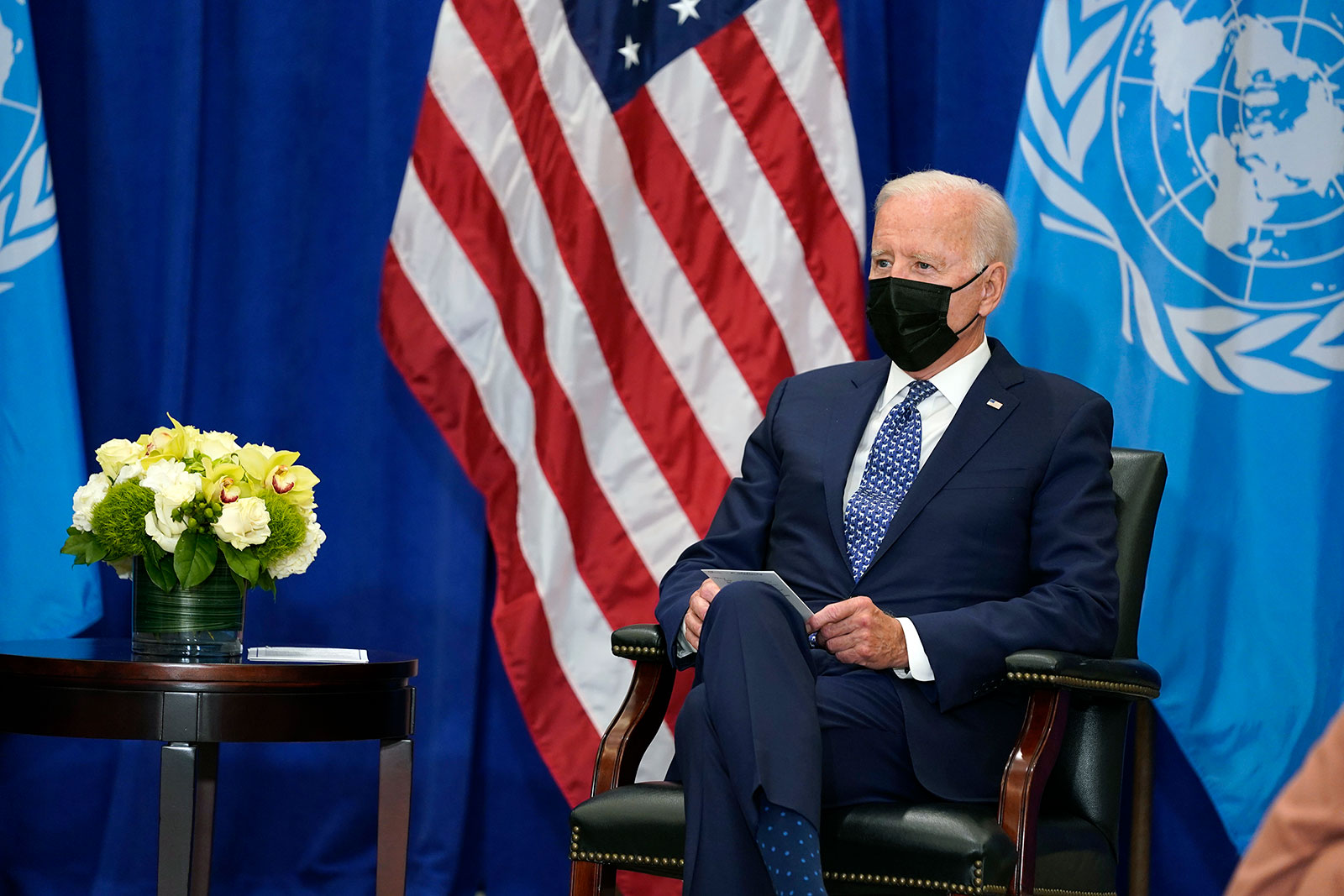
President Biden’s first speech as President to the United Nations General Assembly (UNGA) will amplify his decision to end the war in Afghanistan, arguing it was time to move on to other, modern-day challenges.
“The speech will center on the proposition that we are closing the chapter on twenty years of war and opening a chapter of intensive diplomacy by rallying allies and partners and institutions to deal with the major challenges of our time,” a senior administration official said a day before the address.
Biden is due to make his debut on the UNGA stage on Tuesday morning. He will be speaking amid several foreign policy crises, from a botched drone strike in Afghanistan that killed 10 civilians to a spat with France over nuclear-powered submarines.
The official downplayed those rifts, suggesting the United States continued to lead in areas of climate and Covid-19, citing global summits the President will convene on those topics over the course of the week.
The official listed Covid-19, climate change, emerging technologies, trade and economics, investments in clean infrastructure and counterterrorism as areas the President intends to harness the world’s attention — a prospect made easier by ending prolonged military conflicts.
“The President will essentially drive home the message that ending the war in Afghanistan closed the chapter focused on war and opened a chapter focused on purposeful, effective, intensive American diplomacy,” the official said.
Source: http://rss.cnn.com/~r/rss/cnn_topstories/~3/fwByel4w2eI/h_ed48c03082d9dc7c08f4ee317cf3544c


















